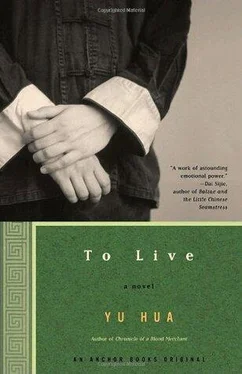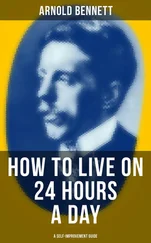When I was ten years younger than I am now, I had the carefree job of going to the countryside to collect popular folk songs. That year, for the entire summer, I was like a sparrow soaring recklessly. I would wander amid the village houses and the open country, which was full of cicadas and flooded with sunlight. I had a special affection for that bitter tea that farmers brew. There would always be a bucket of just that kind of tea under a tree by the ridge between the fields, and without a second thought I would ladle out enough to fill my tea-stained bowl. Once I’d filled it to the brim, I’d start bullshitting with some of the male workers. The girls would whisper among themselves and then stifle their chuckles as I’d swagger o f. I once spent a whole afternoon talking with an old man who kept a melon patch. I ate more melons that day than I ever had in my life. When I stood up to leave, I suddenly realized that I had as much difficulty walking as a pregnant woman. Later that day, I sat on the porch with a woman who had already become a grandmother. As she weaved a pair of straw sandals she sang “Ten Month Pregnancy” for me. What I loved most was sitting before the peasants’ houses just as dusk fell. As the sun’s rays came down through the delicate branches, I would watch the peasants pour well water onto the ground, cooling the hot dust and sand. Holding the fan they passed over to me, I would try the pickled vegetables, which always tasted like salt. I would watch the girls and talk with the men.
I wore a wide-brimmed straw hat on my head and a pair of slippers on my feet. A towel hung down from my belt behind me; I made it look like a tail patting me on the butt as I walked. All day my mouth was wide open as I yawned, strolling aimlessly through the narrow trails that wove between the fields. My slippers made a funny sound, “ba da ba da,” as the dust along the trail went flying upward. It was as if a truck had sped by.
I’d wander all over the place, not even remembering which villages I’d been to and which I hadn’t. As I’d approach the next country village, I’d often hear the children yelling, “Hey, that guy who always yawns is back!”
And so the people in the village knew that the man who told dirty stories and sang sad songs had come back again. Actually I learned all those dirty stories and sad songs from them. I knew everything that interested them, and naturally this was also what interested me. I once came across an old man with a bloody nose and a swollen face sitting atop the ridge crying. His sadness filled his entire body. When he saw me coming he looked up, and his weeping grew louder. I asked him who beat him like this, and, scraping the mud off his pants with his fingernail, he told me with anger that it was that ungrateful son of his. When I asked him why, he kept beating around the bush but wouldn’t explain. I immediately surmised that the old man must have been putting the moves on his daughter-in-law. Then on another occasion, I was hurrying on my way at night when the glow of my flashlight fell upon a pair of naked bodies beside a pond. One was pressing against the other. When I shined my light on them, except for a hand scratching a thigh, the two bodies lay absolutely still. I quickly turned off my light and got out of there. One afternoon during the height of the farming season, hoping to get a drink of water, I walked into a house whose doors had been left wide open. A man wearing shorts and looking quite flustered stopped me and led me outside to a well. He eagerly hoisted up a bucket of water for me from the well, then like a rat scurried back into his house. These were all common occurrences, almost as common as the folk songs I heard. When I gazed at the green earth that surrounded me, I came closer to understanding why the crops here grew so vigorously.
That summer I almost fell in love. I met an enchanting young girl, and even today her dark complexion glitters and radiates before my eyes. When I saw her, her pants were cuffed up high as she sat on the grass beside the river. Watching over a flock of large, plump ducks, she held a bamboo pole to prod them and keep them together. This timid sixteen- or seventeen-year-old girl spent a scorching afternoon with me. Every time she smiled she would lower her head in embarrassment. I noticed how she secretly rolled her pants back down and hid her bare feet in the thick grass. That afternoon I spoke endlessly and irresponsibly of my plans to take her away to see the world. She was both frightened and pleased. At the time I was in quite high spirits and very sincere about what I said. During that short time with her, I was overcome by a bliss that extended throughout my body and soul — never once did I stop to think about tomorrow. Only later when her three brothers, each of whom was built like an ox, approached, did I start to get scared. I felt the best thing for me to do would be to get out of there — the faster the better — that is, unless I wanted to end up really marrying their little sister.
It was just as summer arrived that I met an old man named Fugui. That afternoon I made my way over to a tall tree with lush foliage to get some relief from the blistering sun. The cotton in the fields had already been harvested. A few women wearing scarves were collecting the cotton stalks — every now and then their asses would wiggle as they removed the mud from the stalk roots. I took off my straw hat and, reaching for the towel behind me, wiped the sweat from my face. Next to me there was a pond, which had turned golden under the radiance of the sun. As I sat against the tree trunk facing the pond, I suddenly felt like I needed a nap. I lay down on the grass under the shade of the tree. Covering my face with my straw hat and using my backpack as a pillow, I closed my eyes.
This “me” of ten years before lay down amid the leaves and long grass and slept for two whole hours. During this time a few ants crawled up my leg, but even in my deep sleep my finger accurately flicked them o f. I felt as if I had come to a shore, and the echoing shouts of an old man poling a bamboo raft seemed to reach my ears from far away. I awakened from my dream, and the voice calling out was actually crisp and clear. After I turned around I saw an old man in one of the nearby fields patiently trying to coax an old ox into working.
The ox, probably already exhausted from plowing the field, stubbornly lowered his head and refused to move. The bare-chested old man leaned on the plough behind his beast, seemingly frustrated by the ox’s attitude. I heard his bright voice say to the ox, “Oxen plough the fields, dogs watch over the house, monks beg for alms, chickens call at the break of day and women do the weaving. Have you ever heard of an ox that didn’t plough the land? This is a truth that has been with us since ancient times. Come on, let’s go.”
The weary old ox, after hearing the old man’s lesson, raised his head as if admitting his mistake. Pulling the plow, he began to move forward.
I noticed the old man’s back was just as black as the ox’s. Even though the pair had already entered the twilight of their lives, they still managed to noisily plough the rugged land, the earth breaking up like a wave crashing on the shore. Afterward I heard the old man’s hoarse yet moving voice sing an old folk song. First he sang a long introductory melody, then came two lines of verse:
The emperor beckons me; he wants me to marry his daughter. The road to the capital is long and distant; I don’t want her.
Because the journey is long, he is unwilling to be the emperor’s son-in-law. The way the old man seemed to relish his own cleverness made me burst out laughing. The ox seemed to be slowing up, so the old man once again began to urge him on, “Erxi, Youqing, come on, let’s not be lazy. Jiazhen and Fengxia are doing a good job. Hell, even Kugen does okay.”
Читать дальше












